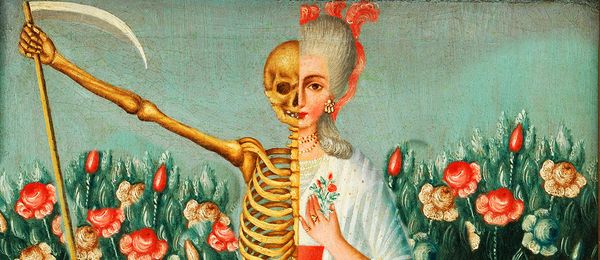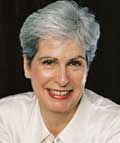Jordan Bates • • 4 min read
The Most Celebrated Meditation on Death in Human History

In 1932, a woman named Mary Elizabeth Frye wrote a poem for the first time. She called it “Do Not Stand at My Grave and Weep.”
Little did she know, her poem was destined to touch the hearts and souls of millions of people.

Many have heard of Frye’s profound poem, ‘Do Not Stand at My Grave and Weep,’ but few are aware of the astonishing story of its origins.
The Remarkable Origins of Mary Elizabeth Frye’s Poem
Orphaned at the age of three, Mary Elizabeth Frye grew up to become a housewife and florist.
While living in Baltimore, USA in 1932, Frye and her husband hosted a guest: a German Jewish woman named Margaret Schwarzkopf.
Schwarzkopf was distraught, as her mother was ill back in Germany. She couldn’t visit her dying mother, however, due to growing anti-Semitic unrest.
When her mother passed, Schwarzkopf was heartbroken, naturally, and told Frye that she had never had the chance to “stand by my mother’s grave and shed a tear.”
Shortly after hearing this, Mary Elizabeth Frye found herself irresistibly compelled to compose a poem. Though an avid reader, she’d never written a poem before, but she began writing on a brown paper shopping bag.
She later said the words “just came to her” and captured what she thought of life and death.
Terms such as “divine inspiration” come to mind when one considers that this first-time poet’s poem, which “just came to her,” went on to become perhaps the most celebrated poem on loss in human history.
Do Not Stand at My Grave and Weep: The Poem
The poem has since been translated into at least a dozen languages, set to music nearly 20 times, and referenced numerous times in popular culture.
It’s reached millions of people, is commonly read at funerals, and was requested over 30,000 times by Brits to be included in a collection of Great Britain’s favorite poems. In 2004, the British newspaper The Times wrote of the poem:
“The verse demonstrated a remarkable power to soothe loss. It became popular, crossing national boundaries for use on bereavement cards and at funerals regardless of race, religion or social status.”
Since discovering it, I have shared ‘Do Not Stand at My Grave and Weep’ with as many people as I can. I honestly feel that it would touch the soul of almost any human being who ever lived.
Now, let’s read this beautiful poem.
Let the words wash over you, and envision the imagery in your mind’s eye.
Let yourself feel the poem’s sacred significance.

Reflecting on Do Not Stand at My Grave and Weep
Upon reading the poem, one immediately understands its deep universal appeal to human beings of every corner of the Earth.
It speaks directly to the soul, painting a portrait of death not as something sad and tragic, but as part of a never-ending process of natural transformation, in which all things change form, but nothing disappears.
It hints at an afterlife but does not claim overtly that one exists. Rather, it expresses a kind of mystical viewpoint, positing that all things are interconnected, and that when one “dies” one simply returns to nature to take new forms. This perspective is echoed by Mufasa in the movie The Lion King when he says:
“When we die, our bodies become the grass, and the antelope eat the grass. And so we are all connected in the great Circle of Life.”
Interestingly, the scientific laws of conservation of mass and conservation of energy accord well with this mystical perspective, asserting that in closed systems, mass and energy cannot be created or destroyed, but can only change form.
Frye’s perspective on death is both soothing and liberating, and such perspectives should be cherished as the rare jewels that they are. I’m reminded of Henry Scott Holland’s iconic poem, ‘Death is Nothing at All,’ and of Friedrich Nietzsche’s tenacious proclamation that the thought of death can bring a sense of lightness to our lives:
“The certain prospect of death could sweeten every life with a precious and fragrant drop of levity; and now you strange apothecary souls have turned it into an ill-tasting drop of poison that makes the whole of life repulsive.”
Thank You, Mary Elizabeth Frye
Mary Elizabeth Frye passed away in 2004, but her words will likely live on for centuries, perhaps millennia.
Her poem and perspective have helped millions of people to better cope with mortality, with the great unknown of death.
They’ve certainly helped and soothed me on a number occasions, and for that I am deeply grateful.
Thank you, Mrs. Frye, wherever you are, for penning these words in that mysterious moment of inspiration.
Godspeed.
If you loved this, you’ll appreciate these as well:

Jordan Bates
Jordan Bates is a lover of God, father, leadership coach, heart healer, writer, artist, and long-time co-creator of HighExistence. — www.jordanbates.life


![Seneca’s Groundless Fears: 11 Stoic Principles for Overcoming Panic [Video]](/content/images/size/w600/wp-content/uploads/2020/04/seneca.png)







